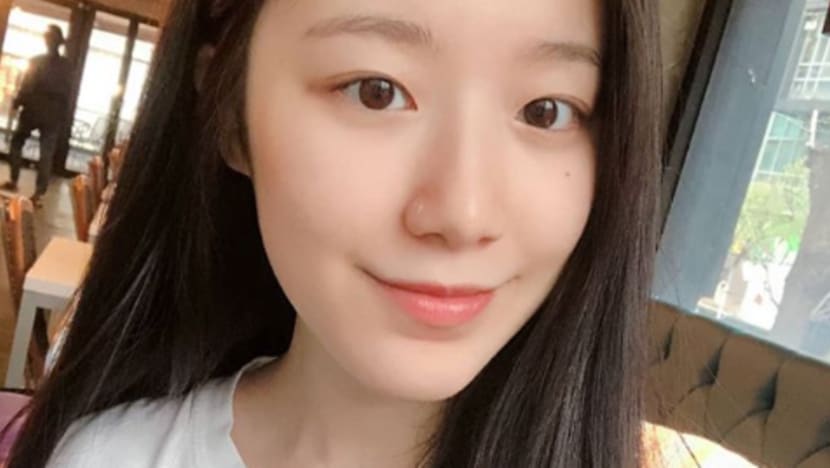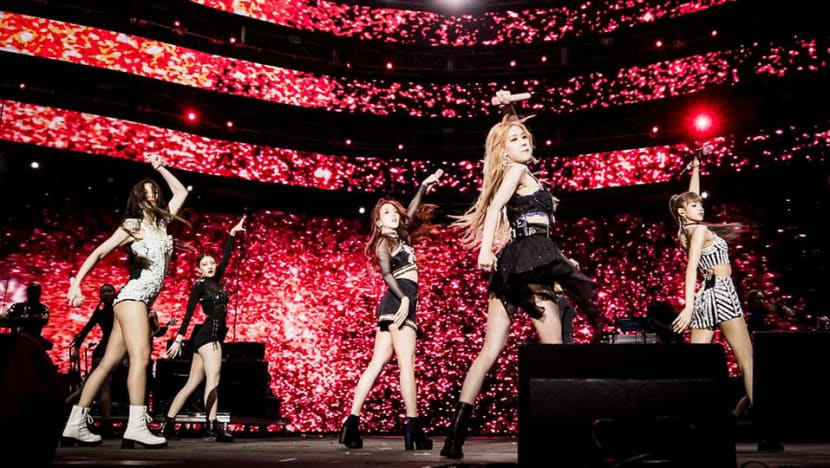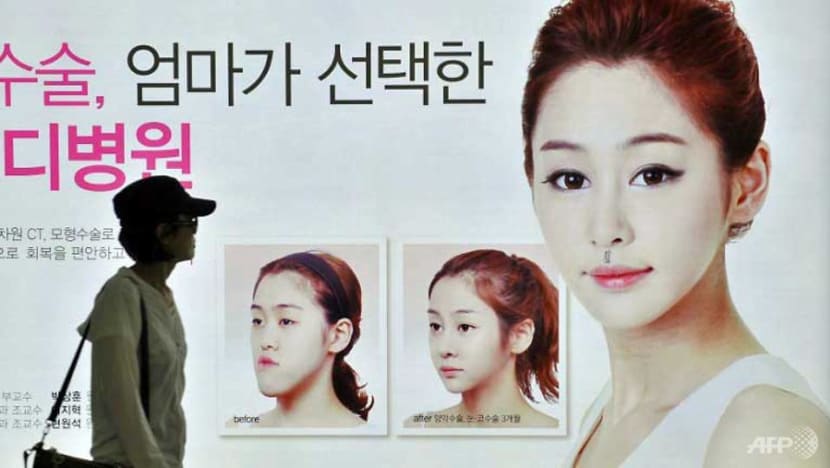commentary Commentary
Commentary: 'Are you sick?' Why more South Korean women are doing away with cosmetics
More women in South Korea are challenging old notions of having to keep up with appearances, says Steven Borowiec.

K-pop girl group (G)I-DLE member, Shuhua, wearing no make-up on an Instagram post (Photo: Instagram/official_g_i_dle)
SEOUL: Shuhua, a member of the K-pop girl group (G)I-DLE recently put up an Instagram post that, while polite, expressed her frustration with daily life in South Korea.
In the post, she said: “Lots of people always ask me, why don’t you wear make-up, or do your nails or dye your hair?”
She went on to explain that she chooses not to spend a lot of time on her hair and make-up, saying that she prefers to look natural.
“Everyone wants different things and has different tastes. I don’t know how people will judge me, but I’m just going to love myself the way I am.
Accompanying in the text was a selfie in which Shuhua appears to be wearing no make-up. The post has now been “liked” roughly 286,000 times.
DOING AWAY WITH OLD EXPECTATIONS
More and more in South Korea, women are expressing their displeasure with being expected to invest money and energy in doing their make-up every day.
Last year, a 25-year-old woman told the Chosun Ilbo newspaper a story of how, on a day when she hadn’t done her make-up due to work commitments, men asked her questions like “Are you sick?” and “Have you given up on doing your make-up?” around ten times.
The pressure for women to wear cosmetics while in public sits on the surface of life in South Korea. It is common for acquaintances, or even perfect strangers, to provide unsolicited commentary on a woman’s appearance.
Women are also at times told that make-up is a part of proper decorum, that it is rude to show up at work or for an appointment without having applied cosmetics.
A woman in South Korea who appears in public without gleaming make-up will often be told that she “looks tired", which is a thinly-veiled way of telling someone they look bad.
And the suggestion that the woman is tired also implies that perhaps she didn’t have time to do her make-up before leaving home, that not being made up couldn’t have been a deliberate choice.
There are also positive incentives. Women with pristine skin are likely to receive compliments from strangers.
And make-up isn't the only aspect of appearance being challenged. South Korean women also feel pressure to stay slim, with television and advertising replete with images of tall, thin celebrities.

In this climate, some women are pushing back, refusing to feel shame over their body types, with a group of plus-size models attempting to change what counts as beautiful.
Nevertheless, it seems like, to a lot of women, the whole subject of appearance is a source of annoyance.
According to a survey carried out last year by Womenlink, a South Korean civic group, respondents cited comments on their appearance as the most common manifestation of gender discrimination in the workplace.
READ: BIGBANG’s Seungri’s sex scandal and the end of K-pop’s innocence, a commentary
A CHANGE, A REBELLION
Things appear to be changing. Some South Korean women have made a point of ditching the daily routine of applying cosmetics before leaving the house.
Such acts are part of a bigger rebellion against their society’s burdensome beauty standards, where particular physical attributes are prized and anyone who doesn’t fit a certain mold is dismissed as unappealing.
A movement called “Escape the Corset” is ongoing, as women fight back against gender-based expectations of appearance, as women post images on social media of themselves with short hair and no make-up, or going as far as to trash their cosmetic products.
It is worth noting that this resistance is motivated by more than a mere frustration with make-up. The at-times heated conversation over cosmetics is one front in a broad national dialogue in South Korea over social conventions that more people are finding the courage to speak out about, and openly defy.
DEALING WITH SOCIAL PRESSURE
South Korea is well known for being a country with high degrees of social pressure.
Anyone who lives here can tell you how often the people around them, particularly the older people, tell them that there are things they must do, standards they must follow, that the choice for how they will live isn’t theirs, that their path must adhere to the contours of convention.

There are reasons for this. It is important to remember that South Korea is only a few generations removed from a brutal war that left the country in ruins.
To this day, the path to a comfortable life is still narrow, with a few companies dominating the economy and upward mobility limited.
There is therefore a sense that it is unwise to take risks by bucking convention, that it is safer and wiser to follow the crowd. This type of thinking even applies to matters of appearance and dress; a woman who refuses to wear make-up could be perceived as odd or rebellious.
At this point I ought to note that I’m observing this situation from a position of privilege. I’m not a woman and therefore face more flexible expectations of appearance and attire.
Also, as a non-Korean living in this country, I’m generally not expected to follow convention in the same way Koreans are, and it’s far less likely that an older person will wag their finger at me and warn me that I’d better fall in line (though that has happened).
Successful social movements tend to combine top-down and bottom-up action. To effect change, it is helpful to have broadly recognisable figures advocating for a cause.
At the same time, regular people must have their own motivations for seeking change, while speaking out within their own social circles.
The movement to mitigate gender-based expectations of South Korean women has these characteristics.
INSTRUCTIVE EXAMPLES
Shuhua, as an influential K-pop star who embodies conventional standards of beauty, has plenty of admirers who follow her every move.
Regular women who, instead of posting their prettiest selfie, have the courage to present their unadorned selves can be an instructive example to those around them.
Steven Borowiec is the politics editor of Korea Expose.












